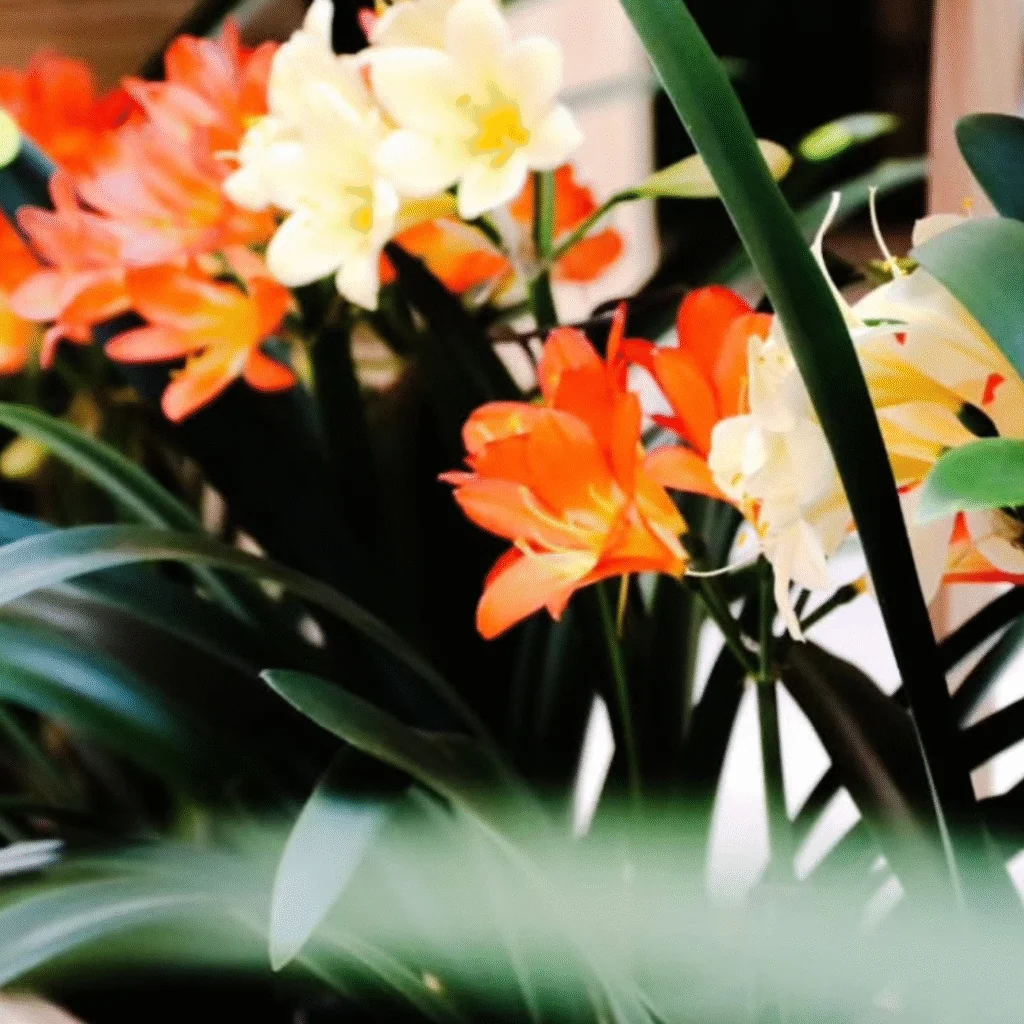

South Africa is blessed with a natural heritage that is unlike anywhere else in the world — and among our greatest botanical treasures is the clivia. Endemic to our mountains and woodland floors, this resilient plant does not grow naturally anywhere else on the planet. From its roots in African tradition to its role in modern gardens and homes, the clivia has become both a symbol of endurance and a source of pride. Now, you can learn all about them up close and personal at the Made To Bloom exhibition at Hyde Park Corner.
Clivias are shade-loving, perennial plants belonging to the Amaryllidaceae family, renowned for their bold trumpet-shaped flowers and glossy, strap-like leaves. Indigenous to South Africa and found nowhere else in the wild, they were first described in the 19th century and named after Lady Charlotte Clive, Duchess of Northumberland, who cultivated the plant in England after hearing about it from travellers. Known in Afrikaans as boslilies (“forest lilies”), clivias naturally thrive on the shaded woodland floor, where their roots nestle in rich leaf litter. Today, they are admired worldwide not only for their beauty and resilience, but also for their deep cultural and historical significance as part of South Africa’s natural heritage. With bright colours of oranges, yellows and reds, clivias are often brought out to uplift one’s spirits after a harsh Winter.
In African tradition, clivias have long been seen as plants of power and protection. Oral history tells how, in ancient times, when cattle died unexpectedly in a village, the community would turn to a sangoma for guidance. Often the cause was believed to be jealousy or witchcraft — and the remedy was the clivia. Used in rituals to break the spell, this plant became a symbol of safeguarding life and community.
Over generations, clivias have also taken on the role of family heirlooms. Often called “granny plants,” they are handed down through households, from grandmother to granddaughter. Their longevity makes them remarkable — they can outlive us, flowering year after year, a living reminder of the people who tended them before.
Historically, their spiritual role has travelled far beyond our borders. It is said that when a Japanese empress died, clivias surrounded her coffin, guiding her spirit safely from this world to the next.
There are six recognised clivia species, each flowering in a different season and each with its own distinct beauty. While they remain deeply tied to South African soil, their appeal has gone global. In countries such as Japan and China, clivias are celebrated as indoor plants, with new genetic varieties being cultivated specifically for compact, apartment-friendly living.
Collectors are especially drawn to rare variations, such as the double clivia — a genetic mutation producing a flower within a flower. South African growers are leading the way in developing these varieties, setting international trends in horticulture.
Clivia enthusiasts often describe themselves as more than gardeners. One collector put it perfectly: “You guys who grow clivias are actually artists. Your medium is alive.”
Indeed, clivias are admired not just for their toughness, but for their beauty. Their blooms bring colour and brightness after the grey of winter, motivating renewal and lifting the spirit. They play a role in life’s significant moments too — adorning weddings, church ceremonies, family gatherings, and even sacred rites.
Clivias are more than flowers — they are legacies. Easy to divide and share, they multiply across generations, strengthening family ties along the way. To gift someone a clivia is to give them a lifelong companion, one that blooms year after year, reminding them of the giver with each season.
This September, Hyde Park Corner is celebrating the season with Made to Bloom. André Swart leads this curated exhibition that brings South Africa’s beloved clivia into the spotlight. From 9 to 14 September, the Centre Court will be transformed into a vibrant display of rare cultivars, with contributions from three of the country’s leading cultivators and collectors.
Visitors can expect to see striking interspecific hybrids, unusual “double” clivias in yellow and green hues, and compact new varieties bred for indoor living. Far more than a floral display, Made to Bloom is an invitation to experience one of South Africa’s great botanical treasures up close. Guests can meet the exhibitors, purchase select plants and learn first-hand what it takes to cultivate these remarkable flowers.
Perfectly in tune with Hyde Park Corner’s reputation for refined lifestyle experiences, the exhibition is a celebration of spring, heritage, and the enduring artistry of clivias.
PS: Be the first to see the future of clivia’s. André Swart believes that the plants will all become double clivia’s in the next 50 years. More so, he has a few that are amongst the first of their kind, ultimately leading this horticultural trend and change.
Clivias remind us that heritage is not only something we inherit, but something we grow, nurture, and pass on. As South Africans, we hold this heritage in our hands. In celebrating clivias, we celebrate resilience, renewal, and the rich natural abundance that belongs uniquely to our land.
Stay up-to-date on the hottest, hippest and most happening things to do in Mzansi!
